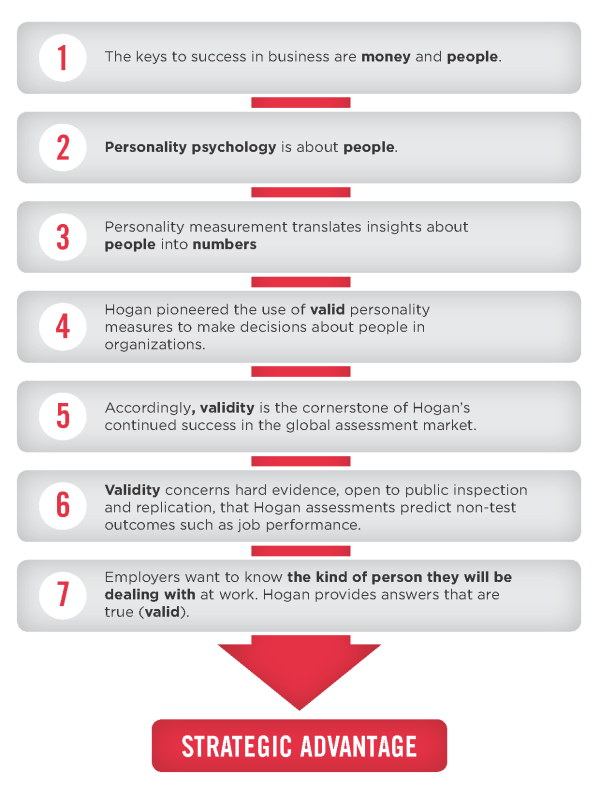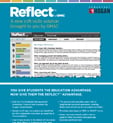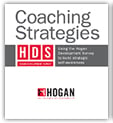Hogan representatives Dave Winsborough, VP of Innovation and head of Hogan X, and Blaine Gaddis, Sr. Manager of Product Research, will both present at this year’s ATP Innovations in Testing Conference in Scottsdale, AZ next week. The conference, which brings assessment industry professionals together, provides a venue for attendees to learn from and collaborate.
Winsborough will facilitate a Featured Speaker Session titled “Disruption of Traditional Assessment Systems: Are We the Walking Dead?” The session will focus on how digitization has created a fundamentally different testing landscape, and how these changes have enabled significant forces that disrupt traditional assessment. Given the choice between being disruptors or being disrupted, this session also seeks to discuss which kinds of response should be taken. The session will occur at 4:30 pm on Monday, March 6.
Gaddis will participate on a panel presentation on “Psychometric Test Security Approaches to Mitigating Cheating and Faking.” In this session assessment experts within I/O Psychology and Education fields will discuss the impact of faking, psychometric approaches to detecting faking and cheating, the use of response distortion measures and analytics, and the use of both technology and “psychometric forensics” to detect cheating.
Also participating on the panel are John Jones, Kelly Dages, and Andre Allen of General Dynamics Information Technology and Joe Orban of Questar Assessment, Inc. The session will take place at 2:30 pm on Monday, March 6.
If you’re planning to attend the conference, stop by and say hello to your friends at Hogan. If you’re unable to attend, follow our updates on Facebook and Twitter.


 I was browsing the internet one night a few weeks ago, and I came across a
I was browsing the internet one night a few weeks ago, and I came across a 

 I have been with Hogan now for just under 12 years. It’s been an incredible experience and I’m privileged to work alongside unbelievable intelligence and talent, but I have to be honest about something: in non-professional situations I dread the question, “So what is it that you do, Jesse?” I envy my wife, who when faced with the same question can simply say “I am a teacher,” or a friend who answers, “I’m an engineer.” You see, my response is something like, “I work for Hogan Assessment Systems. We publish personality assessments.” And so it begins….
I have been with Hogan now for just under 12 years. It’s been an incredible experience and I’m privileged to work alongside unbelievable intelligence and talent, but I have to be honest about something: in non-professional situations I dread the question, “So what is it that you do, Jesse?” I envy my wife, who when faced with the same question can simply say “I am a teacher,” or a friend who answers, “I’m an engineer.” You see, my response is something like, “I work for Hogan Assessment Systems. We publish personality assessments.” And so it begins…. I have been with Hogan now for just under 12 years. It’s been an incredible experience and I’m privileged to work alongside unbelievable intelligence and talent, but I have to be honest about something: in non-professional situations I dread the question, “So what is it that you do, Jesse?” I envy my wife, who when faced with the same question can simply say “I am a teacher,” or a friend who answers, “I’m an engineer.” You see, my response is something like, “I work for Hogan Assessment Systems. We publish personality assessments.” And so it begins….
I have been with Hogan now for just under 12 years. It’s been an incredible experience and I’m privileged to work alongside unbelievable intelligence and talent, but I have to be honest about something: in non-professional situations I dread the question, “So what is it that you do, Jesse?” I envy my wife, who when faced with the same question can simply say “I am a teacher,” or a friend who answers, “I’m an engineer.” You see, my response is something like, “I work for Hogan Assessment Systems. We publish personality assessments.” And so it begins…. Hogan and the Graduate Management Admission Council (GMAC) partnered to launch Reflect by GMAC, the first self-directed, personality-based development tool designed to bring the power of self-awareness to B-school students.
Hogan and the Graduate Management Admission Council (GMAC) partnered to launch Reflect by GMAC, the first self-directed, personality-based development tool designed to bring the power of self-awareness to B-school students. Hogan and the Graduate Management Admission Council (GMAC) partnered to launch Reflect by GMAC, the first self-directed, personality-based development tool designed to bring the power of self-awareness to B-school students.
Hogan and the Graduate Management Admission Council (GMAC) partnered to launch Reflect by GMAC, the first self-directed, personality-based development tool designed to bring the power of self-awareness to B-school students. Providing candidates with accurate feedback about the behaviors they should keep doing, stop doing, and start doing is the first step to improving their interpersonal effectiveness. The Hogan Personality Inventory, Hogan Development Survey, and the Motives, Values, Preferences Inventory provide useful feedback about what individuals need to do to improve their performance at work. This interpretation guide uses a simple, but focused, series of steps to help affect behavioral and repetitional change for the coaching candidate. Visit our bookstore to purchase Coaching Strategies.
Providing candidates with accurate feedback about the behaviors they should keep doing, stop doing, and start doing is the first step to improving their interpersonal effectiveness. The Hogan Personality Inventory, Hogan Development Survey, and the Motives, Values, Preferences Inventory provide useful feedback about what individuals need to do to improve their performance at work. This interpretation guide uses a simple, but focused, series of steps to help affect behavioral and repetitional change for the coaching candidate. Visit our bookstore to purchase Coaching Strategies.
 Providing candidates with accurate feedback about the behaviors they should keep doing, stop doing, and start doing is the first step to improving their interpersonal effectiveness. The Hogan Personality Inventory, Hogan Development Survey, and the Motives, Values, Preferences Inventory provide useful feedback about what individuals need to do to improve their performance at work. This interpretation guide uses a simple, but focused, series of steps to help affect behavioral and repetitional change for the coaching candidate. Visit our bookstore to purchase Coaching Strategies.
Providing candidates with accurate feedback about the behaviors they should keep doing, stop doing, and start doing is the first step to improving their interpersonal effectiveness. The Hogan Personality Inventory, Hogan Development Survey, and the Motives, Values, Preferences Inventory provide useful feedback about what individuals need to do to improve their performance at work. This interpretation guide uses a simple, but focused, series of steps to help affect behavioral and repetitional change for the coaching candidate. Visit our bookstore to purchase Coaching Strategies.
